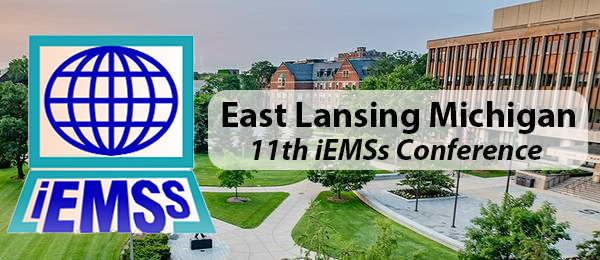Keywords
scenarios; air pollution; emissions; participatory modelling; integrated modelling
Start Date
7-7-2022 2:00 PM
End Date
7-7-2022 2:20 PM
Abstract
Global cities are attempting to address problems of air pollution and greenhouse gas emissions from motorised transport through strategies that seek to reduce vehicle circulation and promote sustainable mobility. However, to put such strategies into practice without compromising citizens’ wellbeing, negatively impacting businesses, or generating unintended environmental consequences is a major challenge. Trade-offs and complementarities between transport, energy and land-use need to be considered in an integrated way, and buy-in must be sought from a wide range of stakeholders. Poorly designed policies can lead to rejection from citizens or parts of the political spectrum. To address these aspects together, new integrated modelling approaches are required to simulate the diverse visions of multiple stakeholders and devise policy responses that are feasible, and seen to be salient, credible and legitimate. In this presentation we describe an integrated participatory modelling approach for transport, energy and land use scenarios for the city of Madrid. Stakeholders representing academia, business, public administration and civil society were contacted and semi-structured interviews were carried out, from which four distinct scenarios emerged: Remote Working, The Fifteen-Minute City, Electric City and Public City. We discuss preliminary attempts to represent these scenarios in an integrated land use model and provide detailed discussion of the challenges encountered. The scenarios are focussed on implementation and are not tied to specific policy objectives or aspirational goal-oriented scenario frameworks like the shared socio-economic pathways (SSPs). Participatory approaches of this kind can help to formulate consensus responses to societal problems in highly contested contexts like sustainable transport planning.
Integrated participatory scenario modelling of air quality and emissions in urban areas. Recent research from Madrid, Spain
Global cities are attempting to address problems of air pollution and greenhouse gas emissions from motorised transport through strategies that seek to reduce vehicle circulation and promote sustainable mobility. However, to put such strategies into practice without compromising citizens’ wellbeing, negatively impacting businesses, or generating unintended environmental consequences is a major challenge. Trade-offs and complementarities between transport, energy and land-use need to be considered in an integrated way, and buy-in must be sought from a wide range of stakeholders. Poorly designed policies can lead to rejection from citizens or parts of the political spectrum. To address these aspects together, new integrated modelling approaches are required to simulate the diverse visions of multiple stakeholders and devise policy responses that are feasible, and seen to be salient, credible and legitimate. In this presentation we describe an integrated participatory modelling approach for transport, energy and land use scenarios for the city of Madrid. Stakeholders representing academia, business, public administration and civil society were contacted and semi-structured interviews were carried out, from which four distinct scenarios emerged: Remote Working, The Fifteen-Minute City, Electric City and Public City. We discuss preliminary attempts to represent these scenarios in an integrated land use model and provide detailed discussion of the challenges encountered. The scenarios are focussed on implementation and are not tied to specific policy objectives or aspirational goal-oriented scenario frameworks like the shared socio-economic pathways (SSPs). Participatory approaches of this kind can help to formulate consensus responses to societal problems in highly contested contexts like sustainable transport planning.



Stream and Session
false